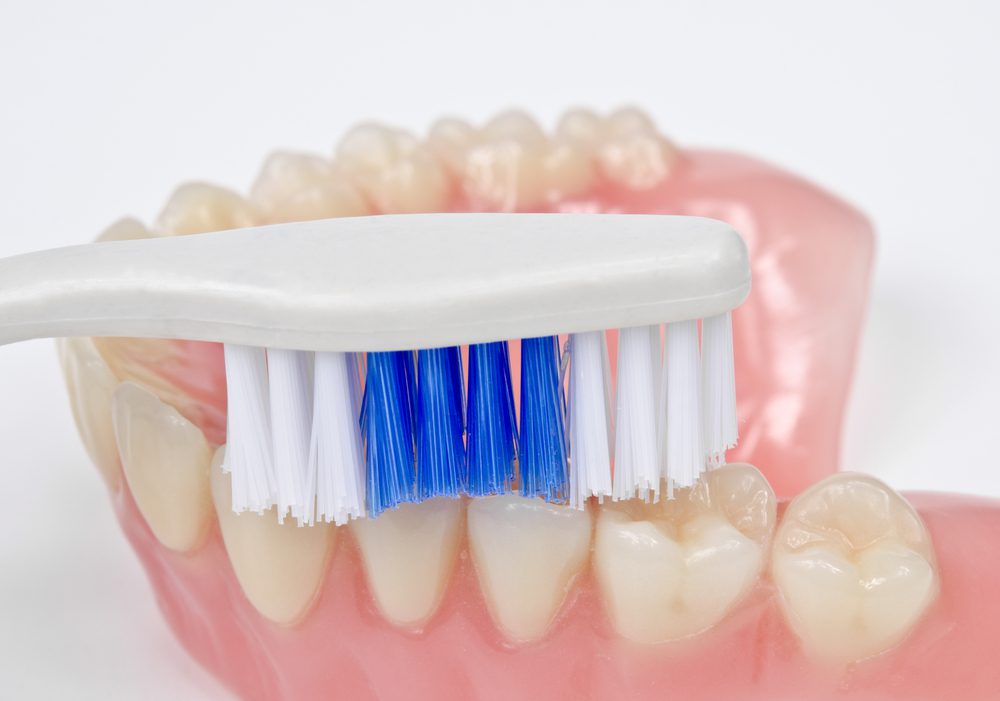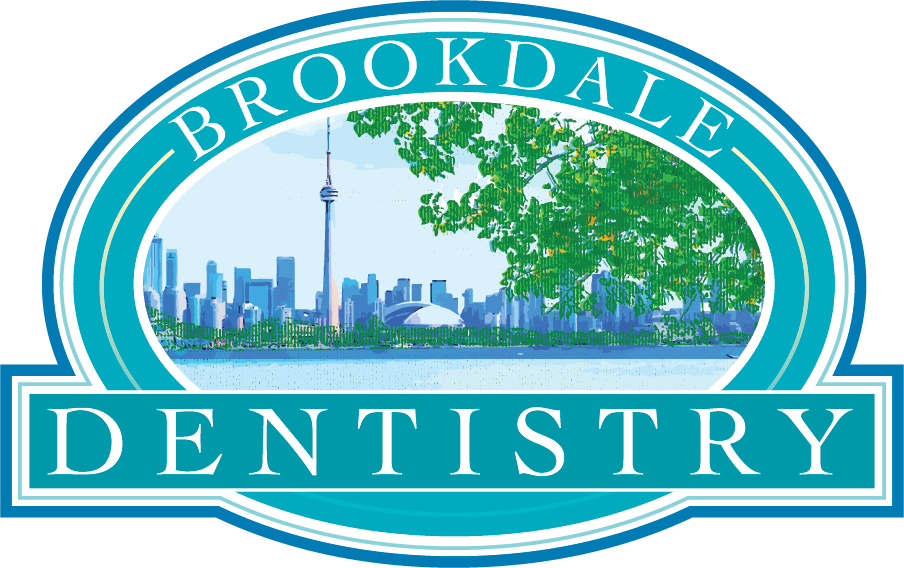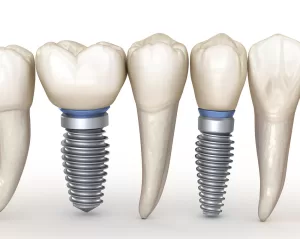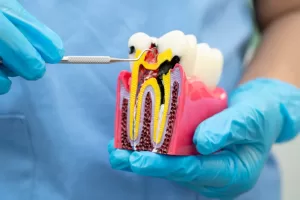Denture Care and Maintenance: All You Need to Know
Dentures are a fantastic replacement option for missing teeth, restoring your smile and improving your ability to chew. But like natural teeth, dentures require proper care and maintenance to function well and last many years. Here’s a detailed guide to ensure your dentures stay clean and comfortable, and keep you smiling brightly.
Daily Cleaning Routine (Brushing and Soaking)
Daily Brushing is Key
It is important to brush your dentures every day, both in the morning and at night. This helps to get rid of food particles, plaque, and bacteria that can cause problems like bad breath and infections. You can use a special denture brush or a soft toothbrush with worn bristles.
Avoid harsh abrasives like regular toothpaste when cleaning your dentures. They can scratch the fragile surface. Use a denture cleanser or mild hand soap with lukewarm water instead. Brush your dentures gently, focusing on the areas that touch your gums.
It’s crucial to clean your dentures well, especially if you use adhesive. Leftover residue can lead to bacteria growth. After brushing, rinse your dentures with water to remove any remaining cleanser or soap.
Soaking for Overnight Maintenance
It is important to soak your dentures in a denture-cleaning solution overnight to keep them clean. This solution helps remove tough stains, eliminate bacteria that brushing alone may not reach, and stop plaque from building up. Remember to follow the instructions provided by the manufacturer for the right amount of solution and soaking duration.
It’s best to soak overnight so the solution can work well. But if you can’t do that, a few hours of soaking will still help.
Remember not to clean or soak your dentures with hot water, as it can lead to warping and damage. Stick to lukewarm or room-temperature water for best results.
Alternative Cleaning Options (if denture solution isn’t available)
If you don’t have access to a denture cleaning solution, there are a couple of alternative methods you can use. One option is white vinegar. Simply fill a cup with undiluted white vinegar and soak your dentures overnight. Make sure to thoroughly rinse them before reinserting them into your mouth. Keep in mind that white vinegar can have a strong smell, so it’s important to have proper ventilation while using it.
Another option is to use baking soda. Create a paste by mixing baking soda with water, then apply it to a soft-bristled brush and gently clean your dentures. Remember to rinse them thoroughly afterward. Although baking soda is effective for cleaning, it may not disinfect your dentures as effectively as a commercial denture cleaning solution.

Beyond Brushing and Soaking: Essential Tips for Optimal Denture Care
In addition to brushing and soaking, there are other practices that can help maintain the quality of your dentures.
- Handle with Care: Handle your dentures carefully over a sink filled with water or a soft towel to prevent them from breaking if dropped.
- Weekly Deep Cleaning: If you want to remove stubborn stains and kill bacteria that regular cleaning might miss, try soaking your dentures in a disinfectant solution once a week. Remember to follow the instructions for the specific solution you choose. To avoid damaging your dentures, it is important to thoroughly read the instructions when using the solution. Using the wrong amount or soaking them for an extended period can be harmful. Some cleansers contain powerful chemicals that may cause gum irritation, so it’s a good idea to consult your dentist if you have any concerns about sensitivity. If you have allergies, it’s best to conduct a patch test before trying a new cleanser.
- Brushing Your Gums: Even if you wear full dentures, brushing your gums is vital for maintaining oral health. Brushing stimulates blood flow to the gums, preventing irritation and inflammation. Use a soft-bristled toothbrush and gentle toothpaste to clean your gums after removing your dentures at night.
- Diet and Denture Health: Eating a healthy diet rich in fruits, vegetables, and whole grains provides essential nutrients for maintaining good oral health. Limit sugary foods and sticky candies, as these can adhere to your dentures and contribute to plaque buildup. Additionally, avoid chewing on hard foods like nuts or candies, which can damage or crack your dentures.
- Regular Dental Checkups: Schedule regular dental checkups (at least once a year) to ensure your dentures fit properly and your mouth remains healthy. Your dentist can check for signs of oral thrush, a fungal infection that can occur in denture wearers, and identify any areas where your dentures might be rubbing or causing irritation. They can also reline your dentures as needed to maintain a snug and comfortable fit.
- Denture Adhesives: Denture adhesives can improve the fit and stability of your dentures, especially if you experience some looseness. However, consult your dentist before using them regularly. Overuse of adhesives can mask underlying issues with denture fit and may contribute to irritation.
- Carrying Case: Invest in a sturdy carrying case to protect your dentures when not in use. This will help prevent them from getting scratched, damaged, or lost.
- Label Your Dentures: If you have multiple dentures (e.g., for sleeping and daytime wear), label them to avoid confusion, especially if you have limited vision.
Additional Considerations: Adjusting to Dentures
While denture care is essential, it’s important to understand that getting used to dentures takes time and practice. New denture wearers may face difficulties with speaking, eating, and feeling confident. However, with practice, these problems usually get better as your mouth and muscles adapt to the dentures.
If you’re having trouble getting used to dentures, reach out to your dentist for help. They can provide advice and assistance to make the adjustment easier. You can also find helpful resources online and in support groups to connect with others who have gone through the same experience.
The Bottum Line
To ensure your dentures continue to serve you well and boost your confidence, it’s crucial to maintain proper care. By integrating these cleaning tips into your daily routine, you can preserve the comfort, functionality, and cleanliness of your dentures for an extended period. However, if you encounter any unexpected issues, seeking guidance from a professional is essential, especially if you experience discomfort, notice damage, or have questions.
At Brookdale Dentistry Clinic, we specialize in a range of dental services, including oral surgery, Dental veneers,
Dental bonding and Dental Implants Our team of experts is dedicated to providing exceptional care and tailored solutions to meet your needs. Whether you require adjustments to new dentures, guidance on cleaning techniques, or emergency dental care, we’re here to assist you every step of the way. From minor repairs to full denture replacements, our denture specialists are equipped to address any problem you may encounter. Don’t hesitate to reach out to Brookdale Dentistry Clinic for prompt and professional assistance.



